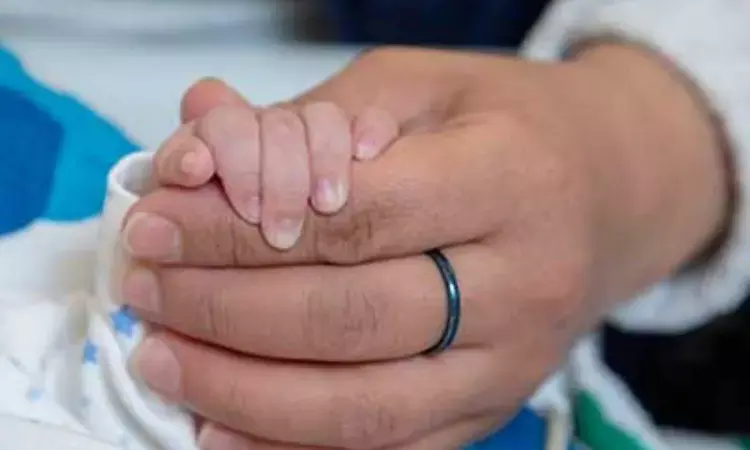- Home
- Medical news & Guidelines
- Anesthesiology
- Cardiology and CTVS
- Critical Care
- Dentistry
- Dermatology
- Diabetes and Endocrinology
- ENT
- Gastroenterology
- Medicine
- Nephrology
- Neurology
- Obstretics-Gynaecology
- Oncology
- Ophthalmology
- Orthopaedics
- Pediatrics-Neonatology
- Psychiatry
- Pulmonology
- Radiology
- Surgery
- Urology
- Laboratory Medicine
- Diet
- Nursing
- Paramedical
- Physiotherapy
- Health news
- Fact Check
- Bone Health Fact Check
- Brain Health Fact Check
- Cancer Related Fact Check
- Child Care Fact Check
- Dental and oral health fact check
- Diabetes and metabolic health fact check
- Diet and Nutrition Fact Check
- Eye and ENT Care Fact Check
- Fitness fact check
- Gut health fact check
- Heart health fact check
- Kidney health fact check
- Medical education fact check
- Men's health fact check
- Respiratory fact check
- Skin and hair care fact check
- Vaccine and Immunization fact check
- Women's health fact check
- AYUSH
- State News
- Andaman and Nicobar Islands
- Andhra Pradesh
- Arunachal Pradesh
- Assam
- Bihar
- Chandigarh
- Chattisgarh
- Dadra and Nagar Haveli
- Daman and Diu
- Delhi
- Goa
- Gujarat
- Haryana
- Himachal Pradesh
- Jammu & Kashmir
- Jharkhand
- Karnataka
- Kerala
- Ladakh
- Lakshadweep
- Madhya Pradesh
- Maharashtra
- Manipur
- Meghalaya
- Mizoram
- Nagaland
- Odisha
- Puducherry
- Punjab
- Rajasthan
- Sikkim
- Tamil Nadu
- Telangana
- Tripura
- Uttar Pradesh
- Uttrakhand
- West Bengal
- Medical Education
- Industry
Warm blood cardioplegia safe but does not improve myocardial protection in kids undergoing heart surgery

UK: In pediatric heart surgery, warm blood cardioplegia is a reproducible and safe technique but does not provide superior myocardial protection, says a recent study published in the European Journal of Cardio-Thoracic Surgery.
The study showed that postoperative cardiac troponin T levels did not differ in patients receiving warm versus cold-blooded cardioplegia.
Cardioplegia is a solution administered to the heart during cardiac surgery to temporarily and intentionally arrest the heart for myocardial protection. It is a critical component of cardiopulmonary bypass. The primary goal is to reduce myocardial oxygen demand by creating electrical quiescence and cooling the heart to minimize the ischemic effects of being on bypass.
Intermittent cold blood cardioplegia is frequently used in children, whereas intermittent warm blood cardioplegia is used widely in adults. Serban Stoica from University Hospitals Bristol and Weston NHS Foundation Trust in Bristol, UK, and colleagues aimed to compare biochemical and clinical outcomes with these two methods in a single centre, randomized controlled trial.
The study was conducted to compare the effectiveness of warm (≥34°C) compared to cold (4–6°C) antegrade cardioplegia in pediatric patients. Cardiac troponin T was determined over the first 48 postoperative hours (primary outcome). Teams of intensive care were blinded to group allocation. A comparison was made between effects by intention-to-treat using logistic, linear mixed-effects, or Cox regression.
The study included 97 participants with a median age of 1.2 years. They were randomized to warm (n=49) and cold cardioplegia (n=48), and 61% of participants had a congenital heart surgery score of three or more.
The study revealed the following findings:
- No deaths were observed, and 92 participants were followed for three months.
- In both groups, troponin release was comparable (geometric mean ratio 1.07), as were other measures of cardiac function (arterial and venous blood gases, arrhythmias, echocardiography, vasoactive-inotrope score).
- On average, intensive care stay was 14.6 hours greater in the warm group (hazard ratio 0.52), with a trend towards more extended overall hospital stays (hazard ratio 0.66) versus the cold group. This could be linked to more unplanned reoperations on the bypass in the warm group compared to the cold group (3 vs 1).
"The use of warm blood cardioplegia in pediatric congenital heart surgery was safe but did not improve myocardial infarction," the researchers concluded.
Reference:
Serban Stoica, Helena Smartt, Rachael Heys, Karen Sheehan, Terrie Walker-Smith, Andrew Parry, Richard Beringer, Iakovos Ttofi, Rebecca Evans, Lucy Dabner, Mohamed T Ghorbel, William Lansdowne, Barnaby C Reeves, Gianni D Angelini, Chris A Rogers, Massimo Caputo, Warm versus cold-blood cardioplegia in paediatric congenital heart surgery: a randomized trial, European Journal of Cardio-Thoracic Surgery, 2023;, ezad041, https://doi.org/10.1093/ejcts/ezad041
Dr Kamal Kant Kohli-MBBS, DTCD- a chest specialist with more than 30 years of practice and a flair for writing clinical articles, Dr Kamal Kant Kohli joined Medical Dialogues as a Chief Editor of Medical News. Besides writing articles, as an editor, he proofreads and verifies all the medical content published on Medical Dialogues including those coming from journals, studies,medical conferences,guidelines etc. Email: drkohli@medicaldialogues.in. Contact no. 011-43720751


